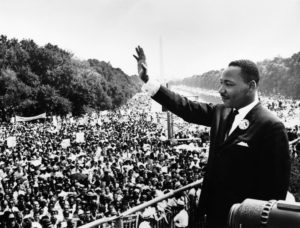Things I’ve learned
- When I was in my early 20s, I really thought I had to change the world, do something remarkable with my life. I now have a new appreciation for just how typical that is with people that age.
- The flip side of this is tremendous anxiety. So many of these young people feel that their entire future is riding on their current endeavor: passing a class, getting that first job, etc. It is heart-breaking to see these people suffering so much anxiety.
- Many of them are motivated solely by money and status. They are completely obsessed by getting a job in one of the biggest, most successful tech companies today (I’ve learned the short-hand for this: FAANG). People with this kind of drive and motivation exist in every generation, but what has changed in recent years, I think, is that software engineering is now one of the career paths that people with this motivation think will get them that success. It used to be other careers: finance, business, etc.
When I make comments in these discussions, it’s often to try to reassure these young people that not getting a job at Google does not equate failure. In actuality, very few software engineers work at these top companies; the vast majority of us make a good living at companies you may not recognize, and have quite happy lives.
The observations above are pretty mundane and, for the most part, not unique to either the time or place of r/cscareerquestions. However, I’ve also noticed a lot of economic anxiety among the young participants in those discussions, and I think that may actually have a component that is unique to recent decades at least.
For most of the 20th century, parents in the United States could feel pretty confident that their children would have a higher quality of life than they themselves had. But this began to change with Gen X parents: stagnating wages and increasing economic inequality led these parents to fear, legitimately so, for their own kids’ futures in a way different from their own parents. And I think this economic anxiety is at least partially explains some of the parenting behavior of the last couple of decades: the dreaded helicopter parent.
I saw this among our cohorts when our kids were young. Katie saw it when she was teaching college: parents who felt that every action they and their kids took could have lifelong economic impacts: make sure that the kids are in the best school, participate in the right extracurricular activities, get the highest grades, make the highest scores on college entrance exams, get into the best university, etc. A feeling that a failure at any point could doom their children’s future. Push, push, push.
This is not a brilliant new theory that I’ve formulated. A lot has already been written on the economics of the recent past. But when I’ve mentioned this theory in discussions on r/careerquestions, several young participants have identified with it. “Oh wow. That was me!” they say. For some of them, this is a new idea. I bring it up in the appropriate discussions in the hopes that helping to provide some perspective to some of these anxious, driven young people might help them to lead happier lives.


